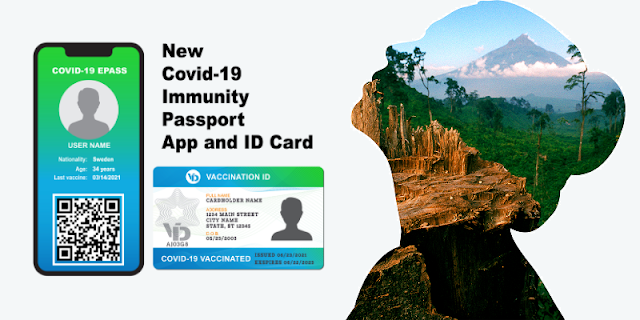The looming disaster of immunity passports and digital identity
A digital ID that proves immunity will raise serious human rights issues. And the failure of the digital ID industry to deal with the issues of exclusion, exploitation, and discrimination puts the entire industry under question.
'Immunity passports' are a theoretical credential - most likely digital - that someone can prove that they have either had the virus and recovered, or have had a vaccination.
Immunity passports are being hyped as a solution to ending lockdowns around the world by actors including the proponents of digital identity; the digital identity industry; think tanks; and the travel industry.
Yet there is currently no scientific basis for these measures, as highlighted by the WHO. The nature of what information would be held on an immunity passport is currently unknown.
The social risks of immunity passports are great: it serves as a route to discrimination and exclusion, particularly if the powers to view these passports fall on people's employers, or the police.
The digital identity industry - pushing their own products as immunity passport solutions - is failing to protect against these harms: they are interested in building wider digital identity systems, based on their pre-existing models, rather than developing a genuine solution to the risks of these passports.
Immunity Passports have become a much-hyped tool to cope with this pandemic and the economic crisis. Essentially, with immunity passports, those who are 'immune' to the virus would have some kind of certified document - whether physical or digital. This 'passport' would give them rights and privileges that other members of the community do not have.
This is yet another example of a crisis response that depends on technology, as we saw with contact-tracing apps. And it is also yet another instance of trying to rapidly respond to complex problems, as governments did after 9/11, by reaching for identity systems.
Fundamentally, for identity system design form must follow function. Identity systems are complex systems that can alter the relationship between the individual, the state, and all the companies and agencies who are granted power in between.
Yet proponents of immunity passports do not yet know the extent of the problem they are solving. Companies selling their pre-existing digital identity solutions should be viewed with suspicion; this is not a problem that has been 'solved' as we have yet to define what the problem is.
In fact, the scientific validity/rationale of 'immunity' is still under question. It is premature to start designing a system without a better understanding of immunity. Crucial questions have to be answered first:
- how and in what ways immunity to the virus is conveyed?
- what a testing regime would look like? For example, is it home-based or does it require a lab? Is it something that can be rolled out at scale quickly to broad populations or is it only accessible to some?
- how long does immunity last? and
- what are the prospects for a vaccine, how long will it last, and how will that be deployed?











